A shadow symbolizes suspense, darkness, uncertainty, mystery, and sadness.
They might represent something hidden from you, or they could be a sign that you are keeping secrets. Shadows can also mean fear, insecurity, and vulnerability. Alternatively, shadows might symbolize your dark side or repressed emotions.
The shadow is the part of ourselves that we repress and deny. It contains all the qualities and aspects of our personality that we refuse to acknowledge.
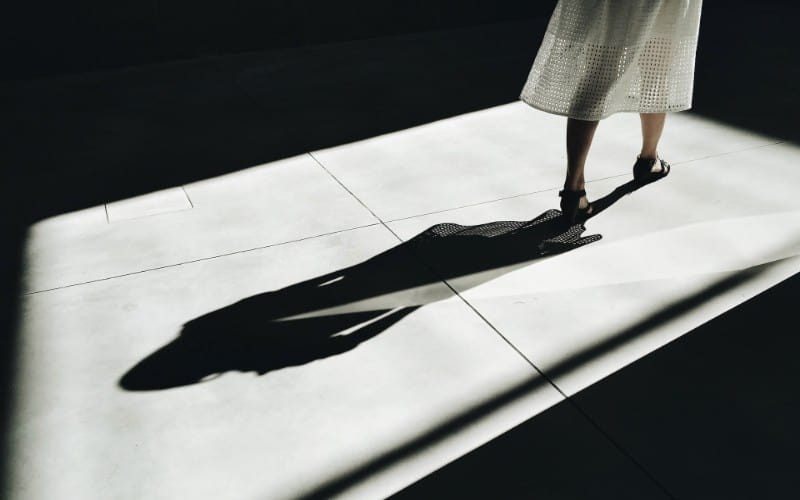
Quick Overview: Shadow Symbolism
- Suspense
- Darkness
- Uncertainty
- Mystery
- Protection
- Hiding
- Subconscious
- Repressed Feelings
- Anger
- Loneliness
- Sadness
11 Shadow Symbolisms
1. Suspense

A shadow is usually associated with darkness, which can represent fear and suspense.
When you see a shadow, it can make you feel like something is lurking in the darkness, which can be scary. Shadows can also be symbolic of something hidden or secret.
Read More: Guitar Symbolism
When something is in the shadows, it can feel like it’s being hidden from you, which can create a sense of suspense. Sometimes, shadows can also represent death.
This is because a shadow is the absence of light, and death is the absence of life. So when you see a shadow, it can remind you of your own mortality and the brevity of life. For all these reasons, shadows are often used to symbolize suspense in movies, books, and other forms of media.
2. Darkness
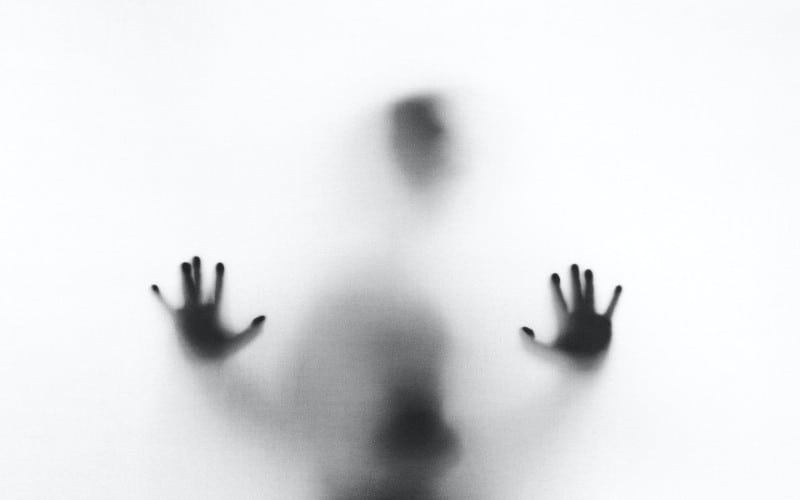
A shadow is cast when an object blocks light. In turn, the absence of light creates a space of darkness.
It’s no wonder, then, that shadows have long been associated with darkness and despair. In many cultures, shadows are seen as souls that have been separated from their bodies. In some religions, they are believed to be the manifestation of evil spirits.
And in literature and film, shadows often represent the dark side of human nature – the part that is hidden, dangerous, and unpredictable. Whether we view them with fear or fascination, shadows remind us of the power of darkness.
They are a constant reminder that, even on the brightest of days, there is always a lurking threat of danger lurking in the midst of us.
3. Uncertainty
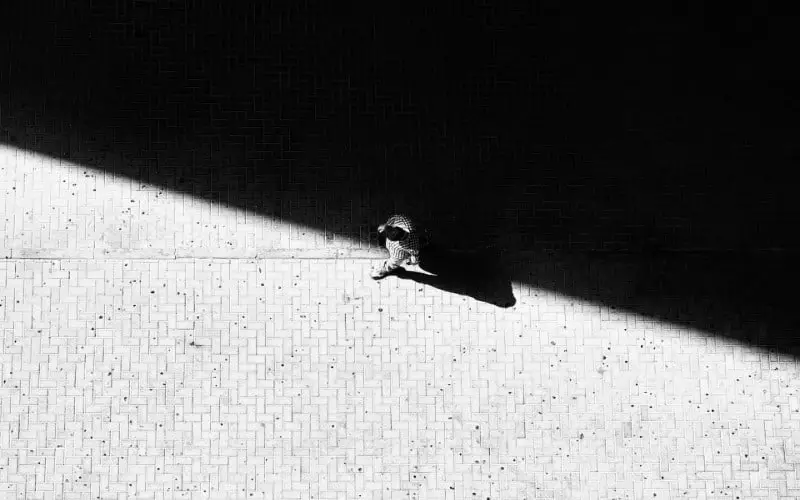
In literature, shadows often symbolize uncertainty, dread, and evil.
They can be used to create a sense of foreboding or to hint at something sinister that is about to happen. By contrast, light often represents hope, purity, and goodness.
In children’s stories, for example, the heroes are often associated with light while the villains are associated with darkness. This is because shadows can be scary and uncertain, while the light is familiar and comforting.
When we are faced with Shadowy figures in our lives, it can be helpful to remember that everyone has both light and dark sides. Recognizing this can help us to accept others and ourselves more fully.
4. Mystery
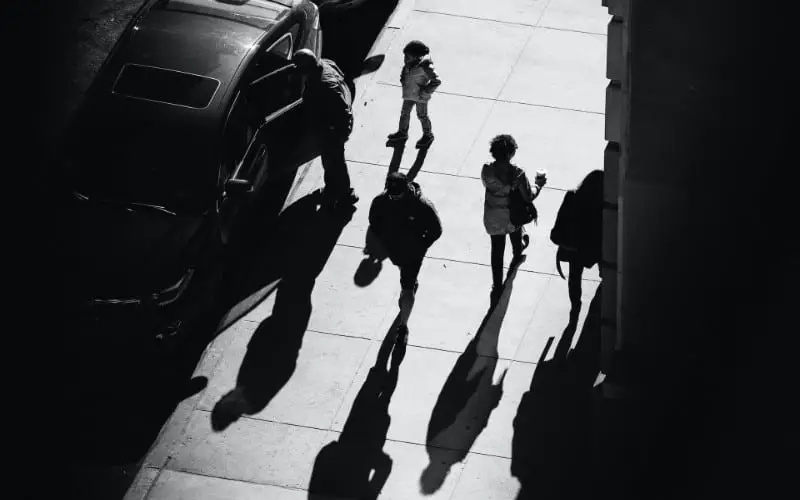
Because shadows are created in the absence of light, they can symbolize mystery.
In literature and film, shadows are often used to develop a sense of suspense or to foreshadow upcoming events.
In psychology, shadows can also represent the parts of our personality that we suppress or try to keep hidden from others.
So while a shadow can simply be an area where light is blocked, it can also represent the darker aspects of our nature.
5. Protection
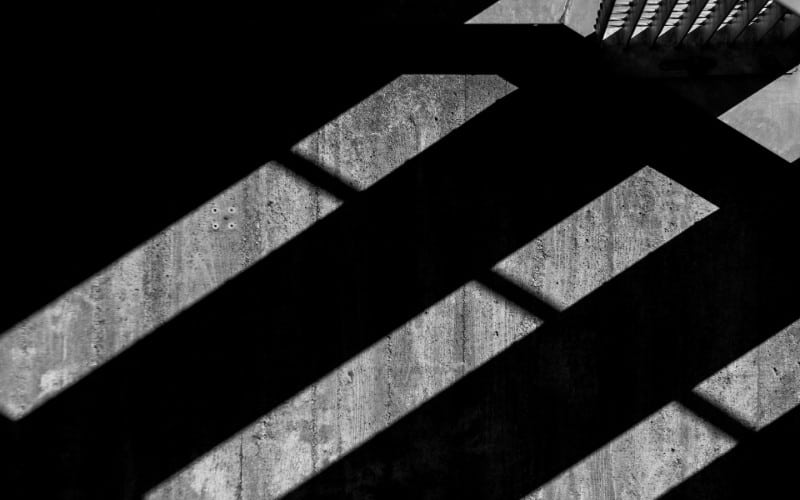
Shadows can also represent protection and safety.
In many cultures, shadows are associated with guardian spirits or gods who watch over people and offer them protection. For example, in Chinese mythology, the sun god Houyi shoots down nine of the ten suns that were scorching the earth.
The goddess Chang’e then takes refuge in the Houyi’s shadow, where she is safe from harm. Similarly, in Greek mythology, the hero Achilles is invulnerable to all weapons except for those that strike him in his heel, which is protected by his mother’s shadow.
Shadows can also be protective in more literal ways. For example, they can provide relief from the harsh rays of the sun or shelter from bad weather.
In many ways, shadows are a reminder that we are never alone – even in our darkest moments, we always have someone or something watching over us.
6. Hiding
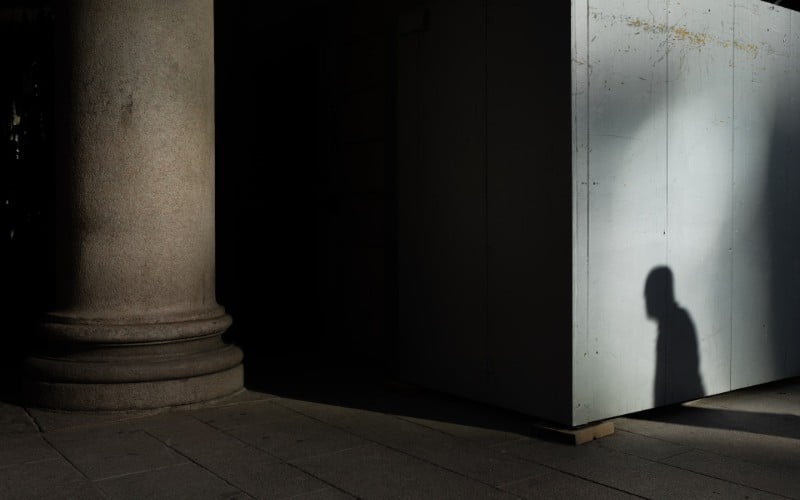
A shadow is often seen as a negative symbol, associated with darkness and hidden dangers.
However, shadows can also be protective, providing a sense of shelter from the bright and harsh light of the sun. In many cultures, shadows are seen as a place of rest and refuge, where weary travelers can take a moment to escape the heat of the day.
In this way, shadows can represent both the good and bad aspects of hiding away from the world. On the one hand, shadows can provide a sense of safety and comfort; on the other hand, they can also be used to conceal secrets and fears.
Ultimately, it is up to each individual to decide what their shadow represents to them.
7. Subconscious
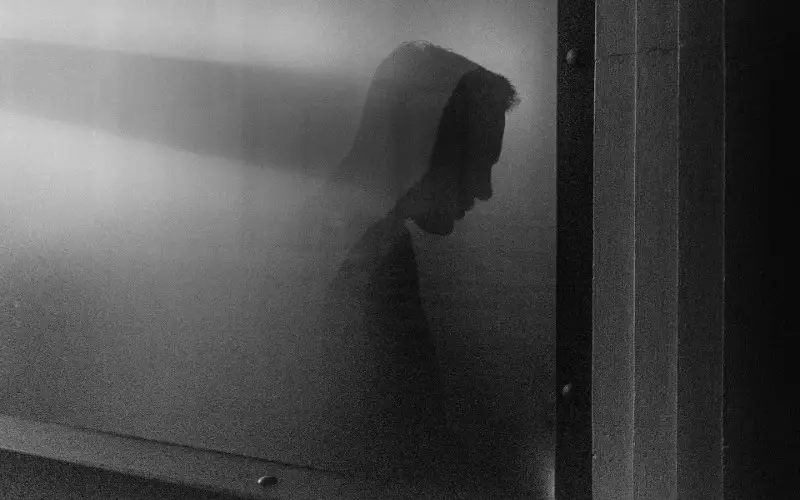
A shadow is often seen as a symbol of the subconscious because it is not always immediately visible to the eye.
Just as our subconscious can hold hidden thoughts and feelings, so too can a shadow hold hidden aspects of reality.
In metaphysical terms, a shadow is often seen as a representation of the dark side of human nature – the part of ourselves that we repress or deny. By acknowledging and working with our shadows, we can bring these hidden aspects of ourselves into the light and integrate them into our lives in a healthy way.
Seen in this way, a shadow can be a powerful tool for personal growth and transformation.
8. Repressed Feelings

In literature, a shadow often represents the parts of ourselves that we keep hidden, or that we are ashamed of. It can also symbolize repressed feelings, such as anger, fear, or sadness.
By keeping these feelings hidden, we may think that we are protecting ourselves from hurt or rejection. However, repression can lead to problems in our relationships and in our own mental and emotional health.
When we repress our feelings, we are not allowing ourselves to process them in a healthy way. This can lead to anxiety, depression, and other mental health problems.
When we allow ourselves to feel our emotions fully, we can begin to heal the wounds that they represent. In this way, a shadow can be seen as a symbol of hope and healing.
9. Anger
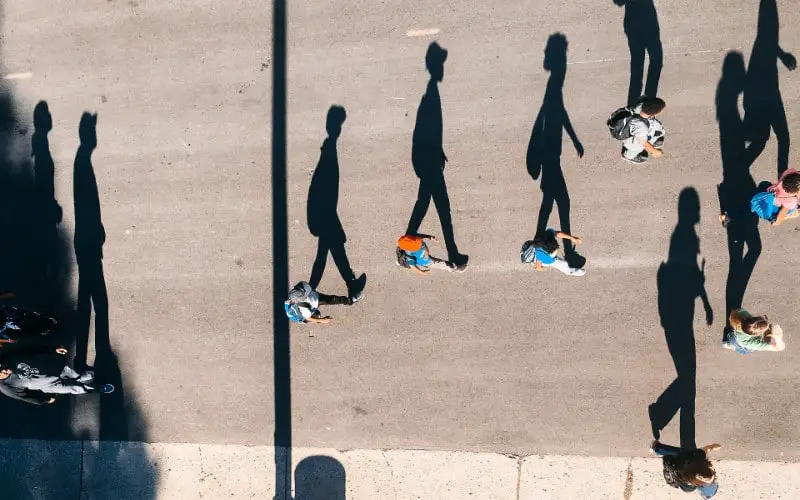
A shadow often symbolizes anger because it is something that can be cast over someone or something.
When we are angry, we tend to feel like we are being engulfed by a dark feeling. This is why a shadow can be seen as a symbol of anger. A shadow is also something that can be used to hide from the light.
When we are angry, we may feel like we need to hide away from others. We may also feel like we are in the dark and that no one can understand us.
All of these things can make a shadow seem like a symbol of anger.
10. Loneliness

While a shadow can be a comforting presence, it can also be a reminder of our loneliness.
We can feel like our shadow is all we have, and that no one else can understand what it’s like to be in our shoes.
But just because someone doesn’t have the same experiences as us doesn’t mean they can’t empathize with our feelings of loneliness.
Our shadows may be a reminder of our loneliness, but they can also be a reminder that we’re not alone in our feelings.
11. Sadness
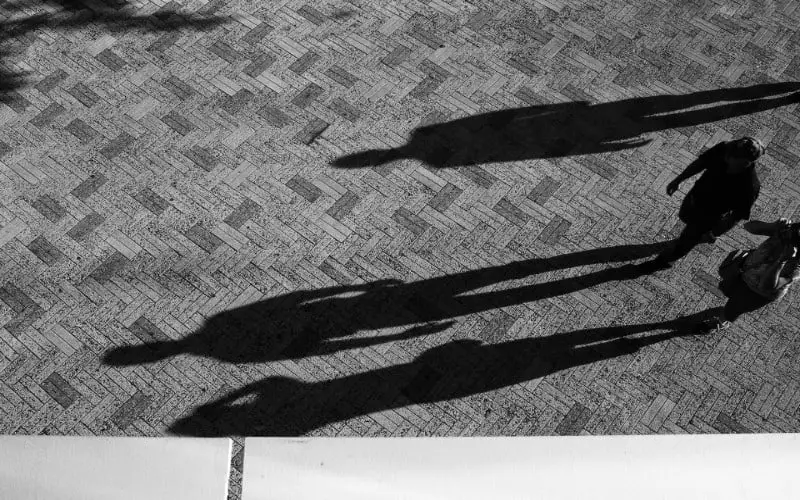
A shadow is a symbol of sadness in many ways.
They are both dark, and depressing, and make you feel alone. A shadow is also something that is constantly with you, no matter where you go. It’s a physical representation of your internal sadness.
Additionally, shadows are often associated with bad things happening; for example, a shadow can be an omen of death.
In some cultures, shadows are even believed to be evil spirits. All of these factors contribute to why a shadow is such an accurate symbol of Sadness.
Spiritual Meaning of Shadow
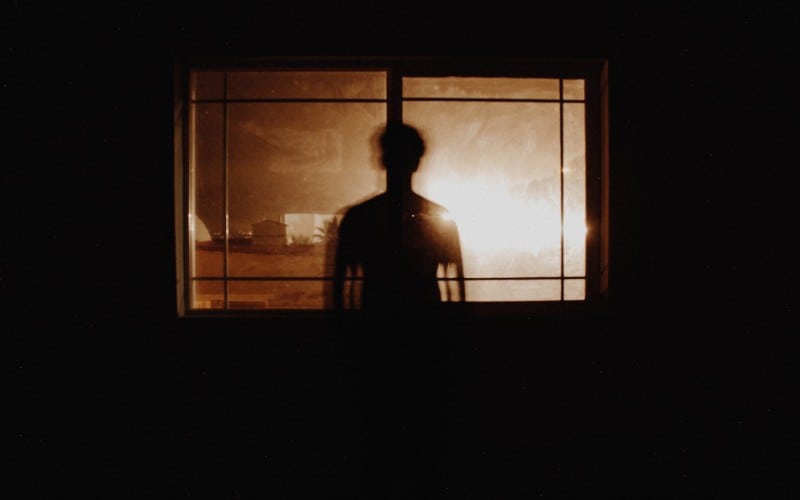
The shadow is the part of ourselves that we repress and deny. It contains all the qualities and aspects of our personality that we refuse to acknowledge. By definition, the shadow is hidden from our conscious awareness.
However, it still exerts a powerful influence on our lives. The shadow is often portrayed as a dark and menacing figure. However, it can also be seen as a source of strength and creativity.
Our shadows contain all the aspects of ourselves that we are afraid to reveal to the world. They represent our fears, our desires, and our deepest secrets.
By facing our shadows, we can learn to accept all parts of ourselves and become whole again.
Shadow Dream Meaning and Symbolism
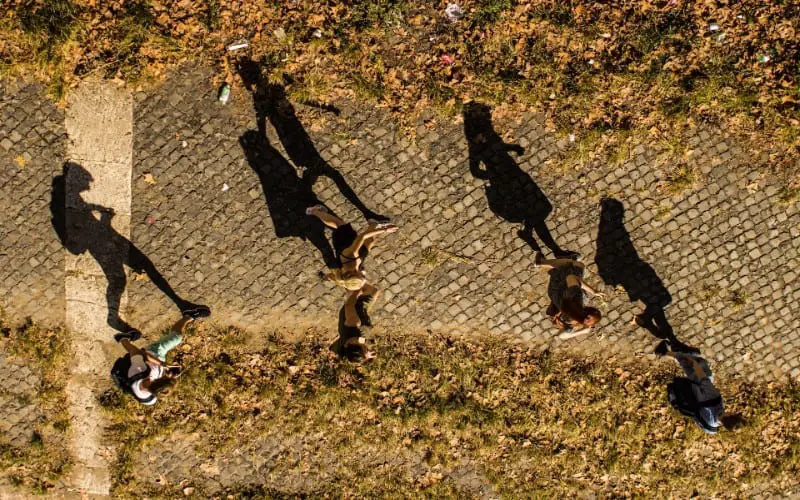
Dreams about shadows can be interpreted in many ways. They might represent something hidden from you, or they could be a sign that you are keeping secrets.
Shadow dreams can also mean fear, insecurity, and vulnerability. Alternatively, shadows might symbolize your dark side or repressed emotions.
If you dream that you are being followed by a shadow, it could mean that you are feeling persecuted or threatened. Alternatively, the shadow might represent an aspect of yourself that you are trying to keep hidden.
If you see a shadow in your dreams, pay attention to what else is happening in the dream. The other symbols in the dream will help to provide additional meaning. For example, if the shadow is chasing you, it might suggest that you are running from something.
Alternatively, if the darkness is engulfing you, it might indicate that you are feeling overwhelmed by your emotions. Shadows can be both frightening and intriguing, but understanding their meaning can help to shed light on your own subconscious mind.
Conclusion
Shadows can be interpreted in many ways. They might represent something hidden from you, or they could be a sign that you are keeping secrets. Shadows can also represent fear, insecurity, and vulnerability. Alternatively, shadows might symbolize your dark side or repressed emotions.
